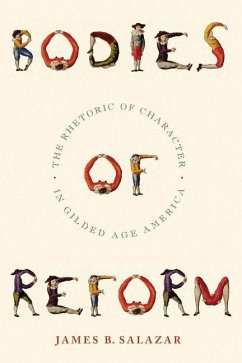From the patricians of the early republic to post-Reconstruction racial scientists, from fin de siecle progressivist social reformers to post-war sociologists, character, that curiously formable yet equally formidable "e;stuff,"e; has had a long and checkered history giving shape to the American national identity.Bodies of Reform reconceives this pivotal category of nineteenth-century literature and culture by charting the development of the concept of "e;character"e; in the fictional genres, social reform movements, and political cultures of the United States from the mid-nineteenth to the early-twentieth century. By reading novelists such as Herman Melville, Mark Twain, Pauline Hopkins, and Charlotte Perkins Gilman alongside a diverse collection of texts concerned with the mission of building character, including child-rearing guides, muscle-building magazines, libel and naturalization law, Scout handbooks, and success manuals, James B. Salazar uncovers how the cultural practices of representing character operated in tandem with the character-building strategies of social reformers. His innovative reading of this archive offers a radical revision of this defining category in U.S. literature and culture, arguing that character was the keystone of a cultural politics of embodiment, a politics that played a critical role in determining-and contesting-the social mobility, political authority, and cultural meaning of the raced and gendered body.
Dieser Download kann aus rechtlichen Gründen nur mit Rechnungsadresse in A, B, BG, CY, CZ, D, DK, EW, E, FIN, F, GR, HR, H, IRL, I, LT, L, LR, M, NL, PL, P, R, S, SLO, SK ausgeliefert werden.









